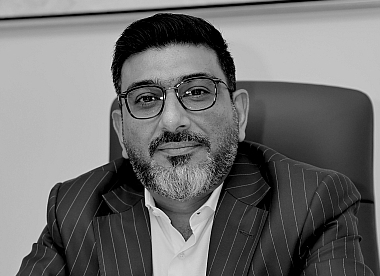Klipit’s founder, Venkat Reddy, seeks to highlight the benefits of adopting a paperless approach, emphasizing its pivotal role in driving sustainability, reducing clutter, and boosting efficiency, resulting in time and cost savings.

In our rapidly advancing society, where technological marvels touch every corner of our lives, it’s becoming increasingly clear that sometimes, less is indeed more. The tangible comfort of holding a paper receipt might seem innocent enough, but the cumulative environmental, economic, and even psychological impacts of our paper addiction are profound. The value of going paperless is no longer just a buzzword but an impending reality, with businesses and consumers globally recognising the immense potential of this transformation. In this opinion piece, we aim to underscore the advantages of going paperless and shed some light on the central role this shift can play in affecting positive sustainable change, reducing unnecessary clutter, and saving time and cost through maximised efficiency.
Understanding Consumer Behavior in the Digital Age
A recent survey we undertook in the GCC region offers a glimpse into the future, showing that Gulf countries are primed and ready to embrace this change – for instance, 49% of GCC residents are in ‘extreme favor’ of digital receipts. This isn’t just a fleeting tech trend. It spans all age groups, with an especially interesting tilt among the older and more affluent populations who view this shift as long overdue. However, this transformation requires more than a one-size-fits-all approach; it demands a holistic strategy that considers nuanced preferences across genders, age groups, professions, and more.
This trend isn’t confined to the GCC. A report by Statista shows that the global digital payment market’s transaction value is predicted to grow at an annual rate of 12%, signaling a massive shift towards digital transactions. This report underscores our own Gulf findings, indicating that paperless transactions through digitisation will soon become the pan-industry norm, leaving those who resist this development at a considerable disadvantage.
Decluttering for a Simplified Life
The psychological benefits of ‘decluttering’ have long been the subject of behavioral studies, with the concepts now entering mainstream consciousness through public and private sector advocacy, social media distribution, and even reality television shows such as ‘Tidying Up With Marie Kondo’, ‘The Minimalists: Less is Now’, ‘Hoarders’, and ‘Hot Mess House’. These shows have become part of a considerable dialogue. This convergence of messaging from diverse touchpoints has brought the once-veiled burden of ‘organisation’ to the forefront of community conscience. According to the Princeton University Neuroscience Institute, clutter can make it more challenging for individuals to focus on tasks. Digitised receipts, which eliminate the unnecessary organisational burden, can significantly reduce both the loss in productivity and the associated stresses that paper clutter, like receipts requiring time-sensitive management and accessibility, cause. This reality affects both industry and consumers alike.
The report aligns with our own survey which showed that 77% of respondents had misplaced or permanently lost paper receipts. This not only has potential financial and tax implications but can also put considerable strain on a population’s well-being due to the resultant anxiety. Paired with the increasing regional appetite for digital solutions (with 76% in favor), this signals a glaring market need and a transformational opportunity on the fast-approaching horizon.
Leveraging The Power of Sustainable Choices
Paper production ranks high in water consumption and is the third-largest emitter of greenhouse gases. According to the World Wide Fund for Nature (WWF), producing a single A4 sheet of paper consumes an average of 10 liters of water. In contrast, the Environmental Paper Network’s calculator indicates that one ton of office paper emits approximately 5.6 metric tons of CO2. By transitioning to digital receipts and curtailing the vast paper demand they entail, we can dramatically mitigate these impacts.
Post-Paris Climate Agreement, consumer consciousness regarding environmental issues has seen a marked uptick. With international cooperative bodies and government entities driving the quest for a shared net-zero future, change is occurring both from the top down and at the grassroots level. These vast initiatives have not only amplified environmental awareness but also emphasized our shared responsibility to combat climate change. The rise of ‘conscious consumerism’ sees a burgeoning segment of the population pressuring businesses and industries to align with their values, emphasizing the importance of eco-friendliness in corporate strategies.
With 70% of GCC survey respondents favoring environmentally proactive brands, businesses now have a clear direction. It’s not just about staying current—it’s about leading the charge.
Championing Efficiency and Responsibility
Beyond the clear environmental advantages, transitioning to a paperless environment promotes efficiency. A study by McKinsey suggests that businesses can boost their overall productivity by 20-25% by adopting digital solutions. This isn’t just about conservation; it’s a pragmatic approach to modern business—melding responsibility with innovation—to ensure enterprises remain competitive in an increasingly digital era.
Dubai’s commitment to a paperless strategy, aiming to digitise all transactions and documentation by 2021, is a testament to the region’s dedication to sustainable futures. It mirrors a broader trend where stakeholders are endeavoring to harmonise technological innovation with ecological conservation.
The global trajectory is unmistakable: the push for a paperless world aligns with a rising consumer consciousness focused on sustainability, efficiency, and digital integration. We stand at the threshold of a revolution where tangible practices make way for digital, not just for convenience but as a deliberate choice for a better tomorrow.



















